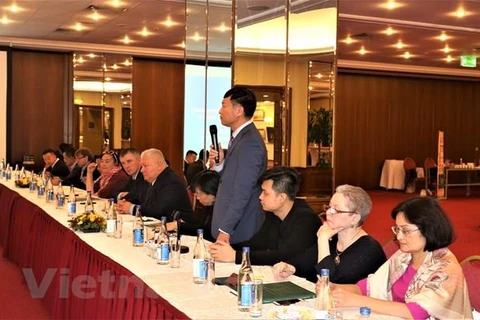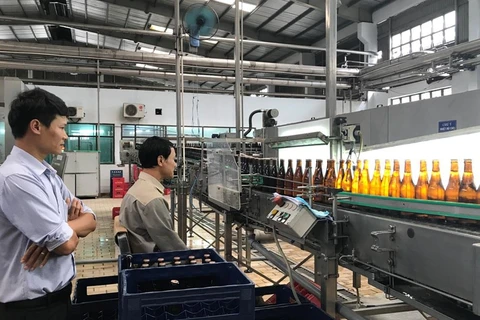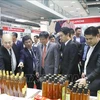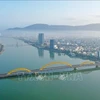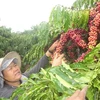 Local staples introduced at a startup and innovation conference in the province (Photo: baodaklak.vn)
Local staples introduced at a startup and innovation conference in the province (Photo: baodaklak.vn) Dak Lak (VNA) – The Central Highlands province of Dak Lak is making concerted efforts to develop its local startup eco-system so as to concretise all business initiatives.
Blessed with fertile soil, tepid climate suitable for agricultural development, Dak Lak is described as a large-scale production area in Vietnam, with a wide range of key products such as coffee, pepper, cocoa, cashew, rubber, avocado and durian, among others.
Under its economic development strategy, the locality has channeled focus on branching out hi-tech agriculture in tandem with shaping up a value chain for local agro-forestry goods to gain competitive edge in both domestic and foreign markets.
Developing renewable energy, trade, services and tourism also takes great interest of the province.
To that end, the provincial People’s Committee has carried out a string of measures to form a startup eco-system, encourage startup and innovation, improve business climate, raise competitiveness and support entrepreneurship development.
According to Deputy Director of the provincial Department of Planning and Investment Huynh Van Tien, the department recommended the provincial People’s Committee to sign a cooperative deal with the Startup Vietnam Foundation (SVF) in building a startup eco-system during 2018-2020, and launch the Dak Lak business incubator joint stock company.
Hoang Minh Ngoc Hai, a senior consultant at SVF, said local staples should become the main focus of startup, and any individuals who want to begin their business should pay due attention to trade and tourism services and technologies besides high-added value agricultural products.
As more visitors have come to the locality, he suggested organisations and individuals, especially young people, begin their startup with local farm produce, tourism products and services to popularise local images as well as improve livelihood of the residents.
He said it is necessary for startups to promote connection with other businesses and organisations to form a firm value chain.
Under the provincial People’s Committee’s plan, Dak Lak will support at least 50 startup and innovation initiatives and projects in the locality during 2018-2020. It targets to back 125 startup initiatives, and have at least 25 startups by 2025. Besides, the province will work to improve mechanisms and policies on startup and further develop the local startup ecosystem.
Dak Lak province has sought investment in agricultural production and processing, especially for exports and those using hi-tech, industrial livestock breeding attached to the food processing industry, regional-level schools and training centres, and supermarkets and malls.
The 13,125sq.km province has an airport and a fairly developed road network, with a network of key national highways passing through it.
It has more than 600,000ha of forests with timber reserves of more than 50 million cubic metres.
With nearly 540,000ha of agricultural land, the province grows high-value commercial crops like coffee, rubber, and pepper, suitable for developing a processing industry around them.
Livestock and poultry farming have developed rapidly in the province, providing investors a good foundation for investing in industrial-scale animal breeding, feed production, and animal and poultry meat processing plants.
A hi-tech agricultural complex, expected to cost 66 million USD, will be developed in the province late this year.
The complex's construction follows a Memorandum of Understanding signed in May in Buon Ma Thuot City between the provincial People’s Committee and Hung Nhon Group from the southern province of Bunh Phuoc and the De Heus Group from the Netherlands.
Construction on the project, spanning 200ha, is scheduled to extend from the third quarter this year to the fourth quarter of 2025.
The complex includes an 80-hectare farm for 2,400 breeding pigs selected and imported from the Netherlands; a 30-hectare chicken breeding area; and a 15-hectare plant for pork slaughtering and organic fertiliser production.
Once completed, the complex will become a leading centre for hi-tech application in animal husbandry, creation of chained products, animal feed, organic fertiliser, and commercial livestock products with the best quality in Vietnam, according to the company.
The province also has potential in minerals like feldspar and lead and sand and gravel for construction, meaning investors can develop processing industries.
It has an abundant workforce with more than 900,000 workers, 400,000 of them trained, to basically meet investors' human resources needs./.
VNA
